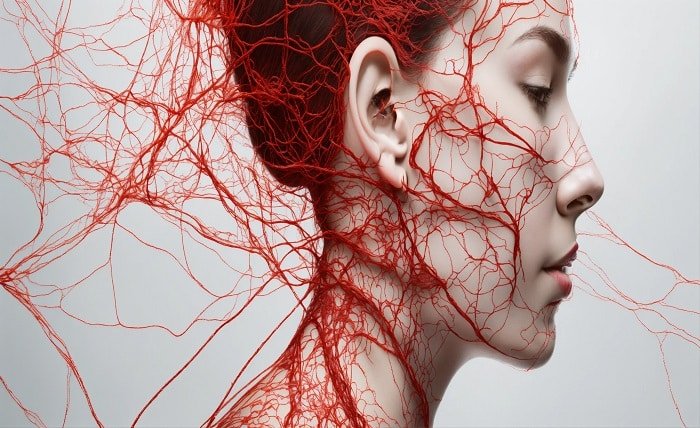Neural Love: Exploring the Intricacies of Human Connections

Introduction:
In the complex tapestry of human emotions, few are as profound and enigmatic as love. From the fervent embrace of romantic passion to the enduring bonds of familial affection, love permeates every aspect of our lives. But what lies beneath the surface of these profound connections? Enter the fascinating realm of neural love, where the intricate dance of neurotransmitters, hormones, and brain circuits orchestrates the symphony of human relationships.
The Neurobiology of Love
Neural love, at its core, is a manifestation of the brain’s intricate neural circuitry. From the initial spark of attraction to the profound attachment that binds individuals together, every stage of love is underpinned by a complex interplay of neurochemicals. Dopamine, oxytocin, and serotonin take center stage, orchestrating the euphoria, bonding, and emotional stability that characterize love.
The Chemistry of Attraction
Attraction, the initial magnetic pull that draws individuals together, is a cocktail of neurochemical fireworks. Dopamine floods the brain, igniting feelings of pleasure and reward, while norepinephrine triggers the heart-pounding exhilaration of newfound love. From the flutter of butterflies in the stomach to the irresistible urge to be near the object of affection, neural love fuels the intoxicating rush of attraction.
The Role of Oxytocin in Bonding
Often dubbed the “love hormone,” oxytocin is the glue that binds individuals together in intimate relationships. Released during moments of physical touch, eye contact, and emotional intimacy, oxytocin fosters trust, empathy, and social bonding. In the intricate dance of neural love, this hormone cements the foundation of enduring connections, from romantic partnerships to parent-child relationships.
The Impact of Serotonin on Emotional Stability
Love is not without its ups and downs, and serotonin plays a pivotal role in navigating the emotional rollercoaster. As the brain’s mood regulator, serotonin modulates feelings of happiness, contentment, and emotional stability. In the context of neural love, adequate serotonin levels are crucial for maintaining a balanced emotional state and weathering the inevitable storms of relational dynamics.
Unraveling the Mysteries of Romantic Attachment
Romantic attachment, the deep-seated bond that forms between partners, is a testament to the power of neural love. Through a complex interplay of oxytocin, vasopressin, and dopamine, individuals forge lasting connections characterized by trust, intimacy, and commitment. From the early stages of infatuation to the mature bonds of long-term partnerships, neural love weaves a tapestry of profound emotional attachment.
The Neuroscience of Heartbreak
As exhilarating as love can be, it is not immune to heartbreak. The dissolution of a romantic relationship triggers a cascade of neural changes, akin to withdrawal from addictive substances. Decreased dopamine levels lead to feelings of withdrawal and despair, while heightened stress hormones amplify emotional pain. Understanding the neuroscience of heartbreak sheds light on the profound impact of lost love on the human psyche.
Love Across the Lifespan: From Infancy to Old Age
Neural love evolves across the lifespan, shaping and reshaping our relationships at every stage of development. From the unconditional bond between parent and child to the enduring companionship of long-term partnerships, love manifests in myriad forms throughout life’s journey. The neurobiological underpinnings of love remain constant, yet its expression adapts to the changing landscapes of human experience.
The Intersection of Love and Mental Health
Love is not only a source of joy and fulfillment but also a potent influence on mental health and well-being. Strong social connections forged through neural love act as a buffer against stress, anxiety, and depression. Conversely, the absence of meaningful relationships can contribute to feelings of isolation and loneliness, with detrimental effects on both mental and physical health.
Navigating the Complexities of Modern Love
In an age defined by technological advancements and changing social norms, the landscape of love is constantly evolving. From online dating algorithms to virtual intimacy, technology has reshaped the way we form and maintain romantic connections. Despite these changes, the fundamental neurobiology of love remains unchanged, underscoring the timeless essence of human connection.
Cultivating Neural Love: Nurturing Healthy Relationships
As we unravel the mysteries of neural love, one truth becomes abundantly clear: love is a dynamic force that requires cultivation and care. By fostering communication, empathy, and mutual respect, individuals can nurture healthy relationships grounded in trust and understanding. Whether in romantic partnerships, familial bonds, or friendships, the journey of neural love is enriched by conscious effort and genuine connection.
Conclusion
In the labyrinth of human emotions, neural love stands as a beacon of hope, resilience, and connection. From the exhilarating highs of attraction to the profound depths of attachment, love transcends the boundaries of individual experience, shaping our lives in profound and transformative ways. As we continue to explore the intricate workings of neural love, may we cherish the beauty of human connection and the boundless capacity of the human heart.
FAQs
1. What is neural love? Neural love refers to the neurobiological processes underlying human emotions and connections, encompassing attraction, bonding, and attachment.
2. How does neuroscience explain love? Neuroscience elucidates the role of neurotransmitters, hormones, and brain circuits in mediating love, highlighting the complex interplay of dopamine, oxytocin, serotonin, and other neurochemicals.
3. Can love be scientifically studied? Yes, love can be studied through various scientific disciplines, including neuroscience, psychology, and sociology, offering valuable insights into the nature and dynamics of human relationships.
4. What happens in the brain when we fall in love? Falling in love triggers a surge of dopamine, leading to feelings of euphoria and pleasure, along with increased activity in brain regions associated with reward and motivation.
5. How does love impact mental health? Love has a profound impact on mental health, serving as a source of support, resilience, and emotional well-being, while also influencing susceptibility to stress, anxiety, and depression.
Read more about: home-workify.com




